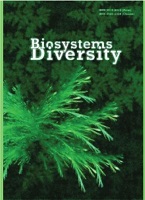Biofouling growth on plastic substrates: Experimental studies in the Black Sea
Biofouling growth on plastic substrates: Experimental studies in the Black Sea
Author(s): A. O. Snigirova, O. Y. Uzun, O. S. Bondarenko, I. A. Kapshyna, I. A. Synegub, V. V. Portianko, S. A. Kudrenko, O. A. Rybalko, L. V. Vorobyova, O. K. VynogradovSubject(s): Human Ecology, Political Ecology, Environmental interactions
Published by: Дніпропетровський національний університет імені Олеся Гончара
Keywords: benthos; microalgae; meiobenthos; macrozoobenthos; marine litter; field studies; Marine Strategy;
Summary/Abstract: Despite long-term research on marine litter there is still insufficient knowledge about benthic organisms associated with these substrates, especially experimental studies and methodology of sampling for complex biofouling assemblages. To predict the fate of plastic in the marine environment it is necessary to know how long the macrolitter can stay in different sea matrices and what are the steps of colonisation by marine organisms. The experiments were carried out during various seasons in situ in the north-western Black Sea coastal area. Three new types of the experimental constructions intended for different durations of exposure (1–10 months) were designed. This article is the first to present the methodology and the results of complex experiments investigating marine fouling (from microalgae to meio- and macrofauna) on plastic surfaces. Overall, 28 genera of microalgae, 13 major groups of meiobenthos and 36 species of macrofauna were found on plastic during the experiments. The microalgae fouling was mainly formed by representatives of genus Cocconeis. The species composition of microalgae was common for the research area. The average density and biomass of meiobenthos were the greatest on I construction type after 8 months of exposure. In the total macrozoobenthos biomass and density of Bivalvia and Crustacea dominated, respectively. The obtained results on the interaction between fouling organisms and plastic materials in the marine environment form an important contribution to the understanding of the "good ecological status" of the sea. Additional studies based on the tested methodology could be used as a component of ecological monitoring during development and implementation of the approaches of the Marine Strategy (descriptor 10).
Journal: Biosystems Diversity
- Issue Year: 30/2022
- Issue No: 4
- Page Range: 397-405
- Page Count: 9
- Language: English

